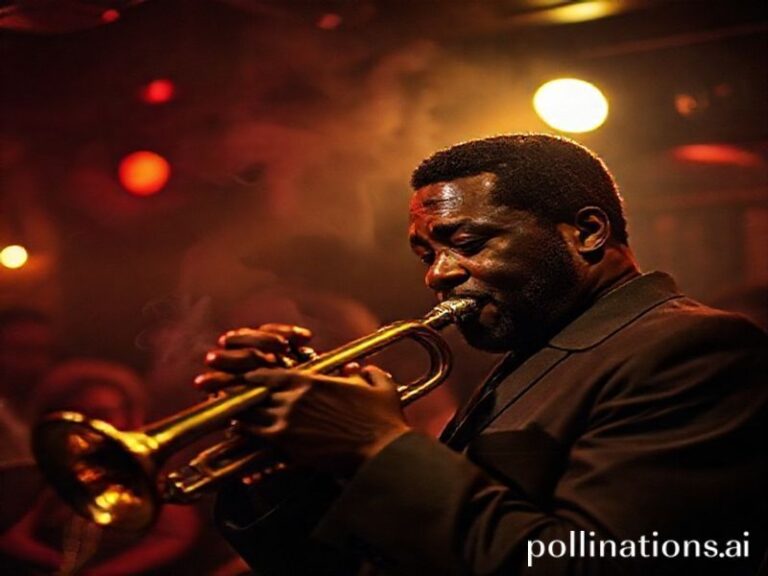fifa world cup 2026
The 2026 World Cup, or “Operation Three-Country Branding Exercise” as its accountants call it, is already warming up on the runway like a private jet full of undecleared cash. Spread across the United States, Canada, and Mexico—a North American triumvirate that can’t agree on the spelling of “defence” yet somehow agreed to share a trophy—it will be the first 48-team tournament in FIFA’s increasingly elastic history. The expansion means more flags, more anthems, and more opportunities for geopolitical awkwardness in the group stage: imagine Iran versus Israel scheduled the same week as a U.S. congressional TikTok hearing. The fixture computer, like humanity itself, has a sense of humor.
From a global perspective, the 2026 edition is less a football festival than a travelling trade fair for soft power. Washington gets to rebrand itself as a convivial host despite having recently tried to build a wall along the very border the final will be played near. Canada acquires something rarer than a temperate summer—international relevance. Mexico, already fluent in hosting (1970, 1986), secures the lucrative semifinal package plus plausible deniability when the inevitable corruption indictments surface. In short, everyone wins except the migrant laborers, who were quietly red-carded before kickoff.
Economically, the tournament is forecast to inject roughly $5 billion into CONCACAF’s favorite acronym, GDP. Most of that will gush through metropolitan bars, rideshare apps, and whatever crypto-stadium-naming-rights deal has been cooked up in the interim. Meanwhile, ticket prices are rumored to start at the cost of a modest wedding in Mumbai, ensuring the traditional fan base—the shirtless, face-painted proletariat—can experience the action via 75-second highlight reels behind a paywall. FIFA calls this “widening access.” The rest of us call it Netflix for nationalism.
The sporting implications are equally grandiose. A 48-team format guarantees more first-time qualifiers, among them possibly Fiji, Uzbekistan, or some other nation whose kit manufacturer has only a fax machine. While purists moan about dilution, broadcasters salivate over fresh markets and the chance to sell ad slots between Malta’s heroic 5-0 loss. The group stage, now swollen to 104 matches, will resemble an extended Netflix series where the writers know most episodes are filler but keep you hooked with the promise of an Argentina cameo in season three.
Climate, that nagging subplot, also gets a speaking role. Organizers promise “the greenest World Cup ever,” a pledge that sounds impressive until you remember the travel itinerary: teams shuttling from Boston to Baja, fans jetting across three time zones and two languages, all so FIFA can offset the emissions by planting a symbolic grove of avocado trees somewhere in Chiapas. Should average summer temperatures in Dallas reach Saharan highs, the matches will simply be scheduled at midnight, because nothing says “family-friendly” like football at 2 a.m. with a heat index of 43°C and $18 bottles of water.
Security will be coordinated by a tri-national task force that meets over Zoom, which is reassuring until you recall that Zoom itself was hacked by a teenager last week. Expect biometric turnstiles, AI crowd analytics, and at least one senator live-streaming his own ejection for carrying an oversized flag. If history is any guide, the only thing more heavily policed than the perimeter will be the corporate hospitality suites, where sponsors sip ethically sourced tequila and wonder aloud why the locals seem irritable.
Yet for all the cynicism, the spectacle endures. Somewhere in Lagos, a kid will save for months to buy a knockoff jersey stitched in Dhaka. In a Dublin pub, three generations will agree on nothing except that Mbappé is still fast. And in a refugee camp outside Amman, someone will rig a generator to watch the final on a cracked phone screen because hope, unlike streaming rights, is still free.
When the confetti cannons fire in New Jersey on July 19, 2026, the world will be reminded—briefly—that humans can, in fact, organize something larger than a war. Then the caravan will move on, leaving behind freshly painted stadiums, unpaid invoices, and a lingering question: was that 90 minutes of transcendence or merely a very expensive distraction from the apocalypse? Probably both. But at least we got extra time.







